About how a relative of the former head of Baltasinsky district sells out of assets
7 Days: from the country's sobriety rating to problems with SME financing
Tatarstan has dived into an alcohol abyss, sliding in the sobriety rating by 30 positions. At the same time, almost half of the population of the republic is engaged in sports and leads healthy lifestyle. The halal market is being in chaos — there are only eight institutions in Kazan that can be trusted. Small businesses cannot get loans for development, banks are interested only in large players who do not really need borrowed money. These and other topics formed the basis of the news and analytical programme 7 Days broadcasted on TNV channel. Read more in the review of Realnoe Vremya.
Drunk Tatarstan
Last week, the public fund Trezvaya Rossiaya ('Sober Russia' — from Russian) published another sobriety rating of the country. The aim of the study is to find out the situation with alcohol consumption in each region. The calculation takes into account the mortality from alcohol consumption, the number of crimes committed while intoxicated, as well as how many alcoholic beverages are sold in a region. The researchers pay attention to how many alcoholics are registered in drug dispensaries, for how many days a year the sale of beverages is banned and at what hours.
The leaders of the rating are Chechnya, Dagestan and Ingushetia. They have been leading not for the first year. The outsiders are all the same Chukotka, Magadan, Nenets Autonomous District. This year, according to the study, Vladimir Oblast and Yaroslavl have made a headlong plunge into the alcohol abyss, dropping by 57 and 40 points of the rating, respectively. The main surprise — Tatarstan, which last year was the 12th in the ranking, has lost 30 positions at once and become a drinking region of the country on paper.
Alcoholism is a serious problem for Tatarstan, narcologists state. Today, there are registered almost 28,000 residents of the republic with alcoholism. These are, for example, the population of Kaybitsky and Kamsko-Ustyinsky districts combined. However, compared to last year, the number of chronic alcoholics has decreased by 12%, narcologists say.
In compiling the federal sobriety rating, the indicator of so-called drunken crimes committed in the region was also taken into account. Here the ministry of internal affairs of Tatarstan states on a reduction of murders in a drunken state by almost 10%. There have become fewer burglaries, banditries and robberies in the republic.
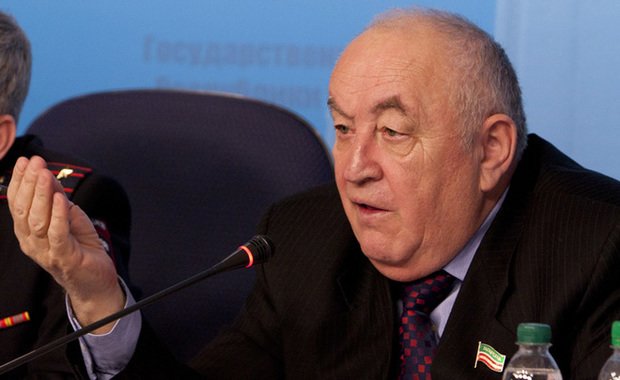
''I do not agree that Tatarstan has dropped in the sobriety rating. It's a play on figures. I agree that we are somewhere in the top twenty. We can't say that we don't drink at all,'' Tatarstan State Council Deputy Rafil Nugumanov believes.
Indeed, the republic continues to drink, but a little less. This is evidenced by the data of the State Alcohol Inspection. For 10 months in the republic there were sold by about 13,000 bottles of vodka less. One Tatarstan citizen on average drank about 10,7 litres of alcohol. Least of all — in Aksubaevsky district, mostly in Laishevo, Verkhneuslonsky and Bugulminsky districts. A Kazan citizen by the end of September on average drank almost a bucket of alcohol. It is legal alcohol — purchased in a store.
All data are taken from the system of USAIS. This automated system is designed for state control over the volume of production and turnover of ethyl alcohol, the alcohol and alcohol-containing products.
Tatarstan is one of the few regions of Russia where the system works effectively. According to our experts, these data of strict accounting played a cruel joke with Tatarstan in the updated rating of sobriety. Let us note that in the Volga Federal District regions — the teetotalers are Orenburg Oblast and Samara Oblast. By the way, it is through them the Chinese alcoholic surrogate enters the Volga region in transit from Kazakhstan. Does the trade on the black market with surrogates really give to regions rating pluses?
''People come from Orenburg Oblast and say that they buy alcohol and products of unknown origin in a market without problems. For us it in the dark ages that alcohol is sold directly from a box or a flap,'' deputy head of the State Alcohol Inspection of Tatarstan Rustem Arslanov says.
By all criteria of evaluation — the performance of Tatarstan has become better, so why then the republic has dropped in the sobriety rating by 30 positions? The question of journalists remained unanswered.

Farida Ishkineyeva, a sociologist from Kazan, even criticized the project Trezvaya Rossiya. According to her, trendy ratings in their essence lead only to competition between regions and lead away from the real problem.
43,4% — only Tatarstan can boast such indicator of involvement of the population in sports. Sociological studies show that youngsters are increasingly choosing a healthy lifestyle, emphasizes Ishkineyeva. The human capacity index and quality of life indices are better suited for determining the climate in the region. According to them, Tatarstan is again among the leaders.
According to experts, the results of the sobriety rating are a reason for taking next measures to combat alcoholism. Last week Russia again started discussing the need to adopt a law banning the sale of alcohol to persons under the age of 21.
Halal chaos
Halal market in the world is expected to exceed 2 trillion dollars by 2022. Such figures were announced at the international economic summit 'Russia — Islamic World: KazanSummit'. However, not everything is smooth on this market, at least in Russia. Suffice it to recall a scandal in June with the company Chelny-myaso. Journalists of 7 Days have investigated the situation in the Halal market today.
Director of the only Halal steak house in Tatarstan Timur Khayrutdinov notes that halal food today is a brand of healthy food, and it's becoming more and more popular.
Timur says they are considering expanding. They are looking for a location to open a second cafe. Meat suppliers are being chosen carefully. First, the supplier must have a certificate confirming that the products are halal. Second, the management of the cafe will go to the farm, control how the slaughter is conducted according to the Muslim canons. Third, there is a controlling body for the café itself — the halal committee at the Muslim Spiritual Board of Tatarstan. They have filed there documents for the extension of the certificate, Timur says.
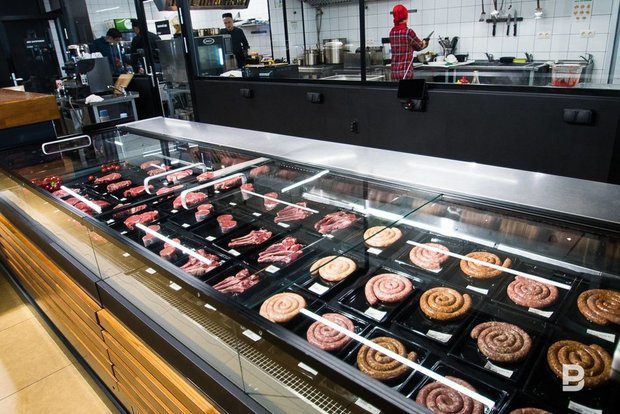
Here is another, opposite example. On the doors of the coffee shop there hangs the logo ''halal''. The consumer can believe the beautiful advertising. In fact, as reported in the committee on the halal standard at MSB RT, it has not been checked, confirmation has not been given.
''Every month we find six to eight locations that use our logo. It is illegal,'' explains public relations adviser to the Chairman of the Halal Committee at MSB RT Ayrat Kasimov.
It turns out that in Kazan there are less restaurants and cafes that serve tested halal food than the fingers on the hands. There are only eight today. The committee has fully vetted these institutions.
The picture is the same in the meat rows of any of Kazan markets. On the cardboard marker says – ''halal''.
''It has been revealed a lot of cases of violation of Muslims' trust, when people trustfully bought a product with the inscription 'halal' in a market, but in fact it was not,'' says the head of the Sharia Department of the Halal Committee at MSB RT Bulat Mubarakov. According to him, the only document that can confirm whether the product is halal or not is the certificate.
''Halal is finally becoming an industry. On the one hand, it is good because it turns into a certain branch of the national economy, butv on the other hand — problems arise. Industry is impersonal, industry aims at profits. We say 'halal is Muslim food'. But the industry already means certain encroachments, an attempt to push back the Muslim factor,'' says head of the technical committee at the Russian Islamic University Rafik Mukhametshin.
There has appeared a fierce competition, and not quite decent players along with it, says Rafik Mukhametshin. Today there are about 20 Halal certification centres on the Russian market. Each of them has its own norms and standards. A technical committee has been established in Tatarstan for the first time in Russia. Its main task is to develop state standards that will help to establish clear rules of the game in the market for businessmen and provide clear guarantees to consumers. The first standard is planned to be adopted by the end of the year.
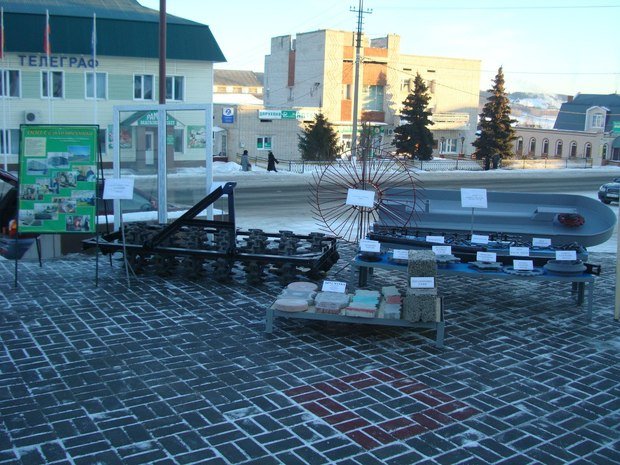
A slumdog millionaire
On a Moscow website for the sale of commercial real estate there has appeared a very interesting announcement. ''For sale the production base in the village Karelino, Baltasinsky district.'' There is no anything surprising one would think. You never know what commercial properties are bought and sold. Interesting is not the object itself, but the cost for which it is sold. The owner has designated a price of 100 million rubles. And this is in the subsidized area, which occupies the 34th place in the ranking of economic development, where there is no large industrial or processing enterprises.
The object for sale is the former Baltasinsky agriculture machinery — Baltasinskaya Selkhoztekhnika. Once the enterprise of all-Union construction was the property of the people. Baltasinskaya Selkhoztekhnika was famous throughout the whole Union. Six hundred workers. The brick in each building is the result of their work. Today old-timers remember that they poured asphalt here these roads at night and built for the employees free housing. Baltasinskaya Selkhoztekhnika even had its own farms and holiday houses. Every leader of the Soviet hardening cared about people, not about their own well-being.
In the early '90s, Baltasinskaya Selkhoztekhnika became a joint stock company. The workers were offered to buy out all the shares of the enterprise, so that each of them had a share. However, none of the owners was able to exercise their right to property and receive dividends.
At first, there was a change of management at the enterprise. The new director, according to the charter of the joint-stock company, was to be elected by the shareholders themselves. But the management process, according to former employees, then was intervened by the ex-leadership of the Baltasinsky district. The director was not elected, but, as they say in this case, was appointed from above.
In 2001, former head of the Baltasinsky district Marat Zaripov entrusted the management of the enterprise to his matchmaker Rafael Gabdrakhmanov. Gabdrakhmanov's son was married to the head's daughter. This information about the close family ties between the head of the district and the new head, in principle, was not concealed. The activity of the new director began with the mass dismissal of employees. Out of the 600 employees within 3 years only three or four employees left. Further — more. Over the same 3 years, the prospering enterprise turned into bankrupt.
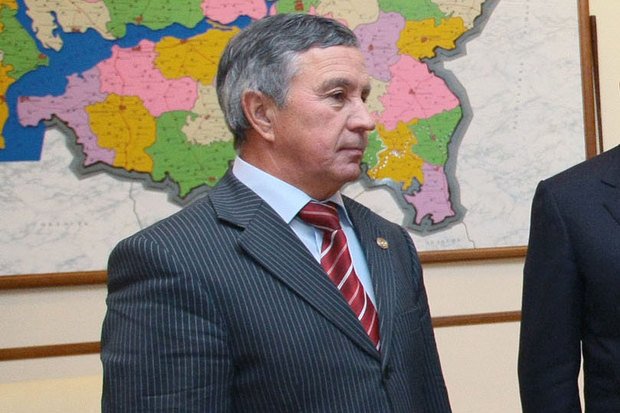
According to former chairman of the trade union committee of the enterprise Tabris Abdrakhmanov, the labour collective fought to the last. The workers even appealed to the head of the district with a request for help, but it was in vain.
In 2004, the arbitration court declared the company bankrupt. According to the legislation, when selling the property, the proceeds must, first of all, go to pay the debt to creditors, the balances are divided between shareholders. At that time, Baltasinskaya Selkhoztekhnika owed to the state 30 million rubles – it is the debts and penalties to the tax and pension fund. The company's employees were confident that the bankruptcy trustee would be able to successfully implement the multi-million farm. After all, it was a question of the enterprise, where dozens of plants with expensive equipment and rich infrastructure were concentrated. However, all the property acquired by the labour collective, the bankruptcy trustee, for unknown reasons, was able to sell only for 6 million rubles. At the auction, oddly enough, only one person showed up. As a result, these 6 million rubles could not cover the debt to the state, and the shareholders respectively did not get anything from the sale of the property.
The new owner of the bankrupt enterprise became… the same former director of the Baltasinskaya Selkhoztekhnika, the matchmaker of the head of the district Marat Zaripov — Rafael Gabdrakhmanov.
''Endless mayhem! It's a shame that someone made money at our expense. They could at least to pay dividends. The current managing didn't strike a finger for this enterprise, but enjoys all benefits,'' the former workers of Baltasinskaya Selkhoztekhnika are indignant.
For Raphael Gabdrakhmanov it is a dark story – no doubt a fairy tale with such a prosperous end for him. All cards are covered. ''Baltasinskaya Selkhoztekhnika is a bankrupt company that now no longer exists. Today he seems to be trying to hit the last jackpot. And to break off all the ties, so that no one has any claims. For the full completion of such a successful business career, it will be enough 100 million rubles for him.''

''Why do small businesses need so many programmes if they do not work?''
Twenty-seven per cent of subjects of small and medium businesses of Tatarstan have applied for credit, and only half has been approved. These figures have been announced at a recent council on entrepreneurship under the president of the Republic of Tatarstan. At the same time, 16% of entrepreneurs did not even try to apply because they are sure that they will not get a loan.
President of the Guild of Realtors of Tatarstan Andrey Savelyev told about a recently conducted experiment. Its purpose is to check the republican banks for loyalty to small businesses. To do this, a secret client visited several credit institutions of the republic. The legend is as follows: we are talking about the priority for Kazan direction of social business such as a private kindergarten. The client already has one, and it works successfully. The premises for the second kindergarten has been chosen. The collateral is available. They need a loan of 2 million rubles for the purchase of equipment and furniture. The result is deplorable: banks in Tatarstan are not interested in such clients.
Journalists of 7 Days decided to conduct their own experiment. The first unpleasant surprise was that it is not easy to even call a bank to get advice on a loan. It took the crew 40 minutes.
Any bank requires at least two sets of documents. The first stage — the so-called statutory documents: questionnaire, application, extract from the Unified state register of legal entities, certificate from the tax authorities and further on the list – in total 10 items. Let us note that this package of documents is required for the security service of the bank, but it is only as an invitation to talk about the loan. Further, the entrepreneur is offered to collect financial documents.
What does the bank ask for? In fact, a complete set of all financial documents, all financial statements, detailed information on all major accounts. For microbusiness it is just unaffordable, for small businesses it is extremely difficult, for medium-sized — very burdensome.
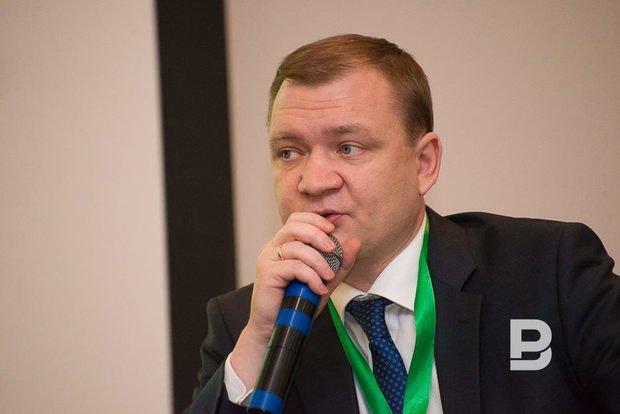
''Whether to be engaged in business, whether to be engaged in documents? Most often entrepreneurs choose business. It is extremely difficult for small businesses to collect this package of documents,'' says Andrey Savelyev.
But even if you have collected all these documents and certificates, proved that you can be trusted, one should be ready for a new turn — the bank will ask for additional documents, and, as says Andrey Savelyev, with a probability of 100%.
''After we presented the necessary package of documents, they began to ask absurd things: photos of office, of products, warehouse, working process,'' Savelyev tells.
You decided to go to the end? Then be prepared for such an outcome. The bank will tell you ''all the documents are ok, the deposit is three times the stated amount of the loan and in general you are a wonderful person, but the loan is still not given.'' Why? That is why!
''We prepared documents for the property as collateral, insured the property. And when everything was ready, in a week they made the decision — ''to refuse the loan''. They referred to the fact that we have, as it turns out, a very risky business,'' says Chairman of the Council of the Association of Small and Medium-Sized Businesses Farid Safin.
This situation is typical not only for Tatarstan. Rather, it is a national-wide trouble. Participants of the business brunch organized by the Realnoe Vremya online newspaper said that it is especially offensive for the republic. After all, it is stated that there are many programmes to support entrepreneurship in Tatarstan. So they're not working? Or do not cover the broad masses of entrepreneurs?
The company of Ravil Gibadullin over 20 years has passed an extensive evolutionary path from home theatres to complex implementation of smart home technology. Ravil assures: many developments are unique, moreover, they are in demand. But he is forced to curtail part of the production business in Kazan and transfer it to Moscow. They pay more attention to such innovative companies. In Tatarstan, he said, they are more likely to survive in conditions of low demand for their services from the state.
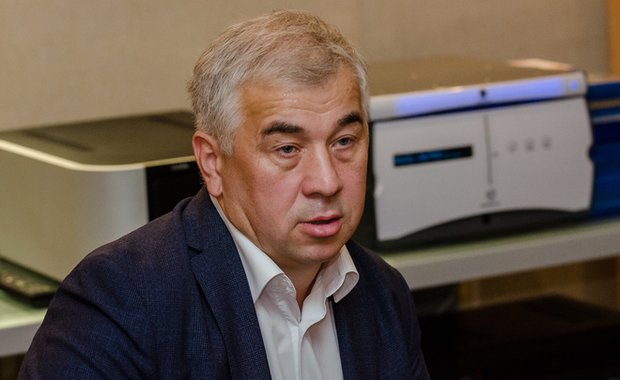
Where to find financing if you are not a large successful business? Ravil Kharisov, a young entrepreneur, the creator of his own brand of handmade shoes believes one should not count on bank loans in any case.
''Entrepreneurs in Russia do not trust the state. This is a key problem,'' Ravil Kharisov is sure.
Small businesss in Kazan are still alive thanks to the enthusiasts such as Ravil. The young man is only 20 years old and the production of shoes is not his first business. There is something alluring in this process that makes people do such somersaults in their careers.
That's what Vlada Krotova did, for the second time trying to build her own business. She changed her stable, high-paying job at a large company for the sake of a ballet school for children. She admits that she can only dream about a profit, but it is possible to divide serious risks only with relatives for now.
''Of course, the banks don't believe in you. They believe in players who don't need money. Therefore it is necessary to borrow money from relatives. And if I manage to get rich, I will incredibly develop,'' says Vlada Krotova.
Developing — it's always good. But it is unlikely that these muscles will be enough for small businesses to solve their big, including financial issues. The banks are not interested in ''kids'', another thing is a large business.